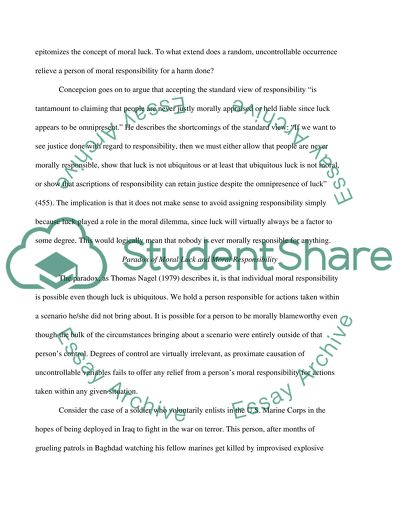Cite this document
(“Moral luck Essay Example | Topics and Well Written Essays - 1250 words”, n.d.)
Retrieved from https://studentshare.org/miscellaneous/1534913-moral-luck
Retrieved from https://studentshare.org/miscellaneous/1534913-moral-luck
(Moral Luck Essay Example | Topics and Well Written Essays - 1250 Words)
https://studentshare.org/miscellaneous/1534913-moral-luck.
https://studentshare.org/miscellaneous/1534913-moral-luck.
“Moral Luck Essay Example | Topics and Well Written Essays - 1250 Words”, n.d. https://studentshare.org/miscellaneous/1534913-moral-luck.


